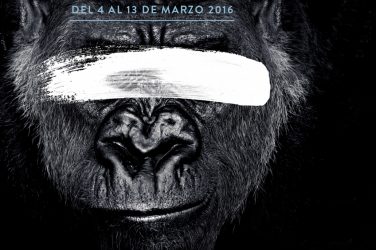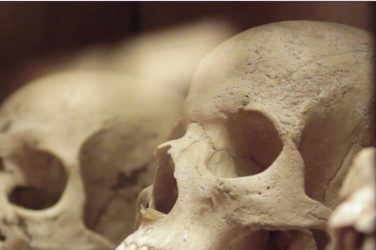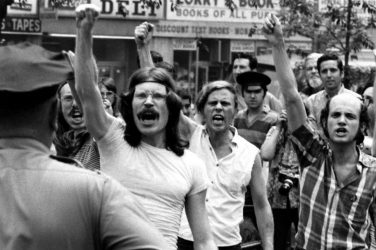Elio Quiroga, with those who dream
Elio Quiroga (Las Palmas de Gran Canaria, 1965) was only afraid, as a child, of an unexpected astral projection that would move him away from his body and his family. With that fear, while he watched Historias para no dormir (Sleepless stories) and listened to mystery shows with his mother, he started messing around with images and scenes with a 16mm camera. As a teenager he kept himself entertained with some short films he made with his friends and that way, filming more and better each time, he had to go on a journey even scarier than those astral projections he was so afraid of as a child. A journey that didn’t take him away from his body but that would take him far away from the expected life of a Computer Engineering student.

“I love Fotos… it’s sick, sexy and fun”. Those words were enough, about his first featured picture Fotos (1996), for Quiroga to know for sure his journey had already begun. They were pronounced by Quentin Tarantino at the Sitges Festival in 1996. That’s where they awarded his first movie with the Best Script and a Special Mention by the jury. It was Tarantino’s words, the same director who in less than two years with Reservoir Dogs (1992) and Pulp Fiction (1994) had given all the new directors, including Elio Quironga, reasons to believe something new had started on the movie industry, what influenced to get this movie and Quiroga to become a new start within Spanish fantastic cinema.
Before Fotos, Elio Quiroga had already proved his abilities weren’t just a one-way artistic calling. Prizes weren’t something unknown either. When he was only twenty-five he published the poetry book Mar de Hombres (1990), which got the special mention at the Poetry Competition of the Canarian Government in 1990, which was also followed by two other books of poems. At the same time he started getting recognition as video-creator, awarded also at the Video Festival in his city, and as a musician as a member, amongst others, of the band DUE focused on experimental electronics, who proposed a techno pop version of La Internacional. Elio Quiroga felt limited when creating as part of a group though, so he invented the pseudonym Miasma and gave birth to individual musical projects with some repercussion like the song Barco de Sangre, promoted on Radio 3.
After all this creative effervescence, Elio Quiroga stops. He lets the time go by, almost a decade, before he makes his name sound again. He did it again, like the first time, reaching the highest levels. With his short film El último minutero (2004) he places a story about photographs of streets and villages amongst the selection for the Goya awards as best documentary short film. This will be a warning of what’s to come. A new period of creativity that will reach, once again, way beyond film directing. Another short film, this time animated and based on a work by Stephen King, Home delivery (2004), takes him to more than 150 festivals that choose it for their official sections adding up several awards and mentions. He works as a producer and screenwriter next to Calparsoro before presenting, eleven years after Fotos, his second film La Hora Fria (2007), and barely two years later, NO-DO (2009), both films submerged on worlds of mystery but through completely different stories. From the zombies in the first one, to a world of ghosts and religion in the second one.
«I think those of us who’ve had a happy childhood make horror movies to get others to suffer»
Elio Quiroga confesses that, even though he works on horror and fantastic movies, he’s never been afraid of ghosts or other mysterious beings who appear on his work. He’s also proven he’s not afraid of more real and common terrors for creative people, like a blank page. In 2012 he launches his first novel El Despertar (2012), which opens a new period where he’ll publish four new literary works in three years, one of them will be the graphic novel Illworld (2015) and the fourth one Los que sueñan (2015) with which he wins the Minotauro award of 2015. A reflexion between horror and science fiction about the limits of the self and the new technologies takes him to receive the prestigious award.
«This is me, but if you make a copy it isn’t me anymore». «Dante is a god who doesn’t want to be it»
Music by Sol Rezza
His several artistic abilities need to be added to his strong political ideas which he’s never denied. On his blog there’s always articles on economical and political issues where he reports on the effects of the crisis and the harms of the oncoming neoliberalism. Even if he’s now moved away from the front row where he placed himself with the apparition of the 15M movement, he get’s excited when he finds artists who are able to report on this situation on their work. On this same road, another author from the Canary Islands, Alexis Ravelo, is his most recent companion. He applauds his capacity to report on what journalism can’t anymore and, maybe, that’s why he’s so inspired with the work he’s doing to adapt to the cinema La estrategia del pequinés (2013), Ravelo’s awarded novel.
«I would like to talk about this city like others talk about New York»
Mystery of the King of Kinema (2014) is also, in a way, a story about ghosts. The ghost of someone who reached the top but is not remembered. A forgotten man, even though he was the first movie star. Max Linder existed, he was the greatest, set up a period and a style, but no one knows him. A forgotten being who Elio Quiroga, through this piece of work, brings back, a century later, to the real world.
«Max Linder was the first movie star, today he’s completely forgotten»
With books, movies and music, Elio Quiroga couldn’t miss on a peep into the fastest growing industry of our time: videogames. On this constant citius, altius, fortius that covers his artistic journey, Quiroga also left his mark. He was the creator of the first commercial game made on the Canary Islands, Free Wheel (2002), and from his production company he created the software Stilgar for the development of videogames that he handed over to the university of Las Palmas de Gran Canaria. An “app” based on a board game is his latest contribution to this industry. «Everything is storytelling» he would tell to those who walk into his lessons at the universitary course of Expert on Videogame Design and Programing he participates on.
We finish the interview and while we stay there, by the sea, at the restaurant La Marinera, Elio walks away and we imagine him submerged into his novels, scripts, filming, writing poetry or designing videogames. Working for and with those who dream.











Mostrar comentarios (0)